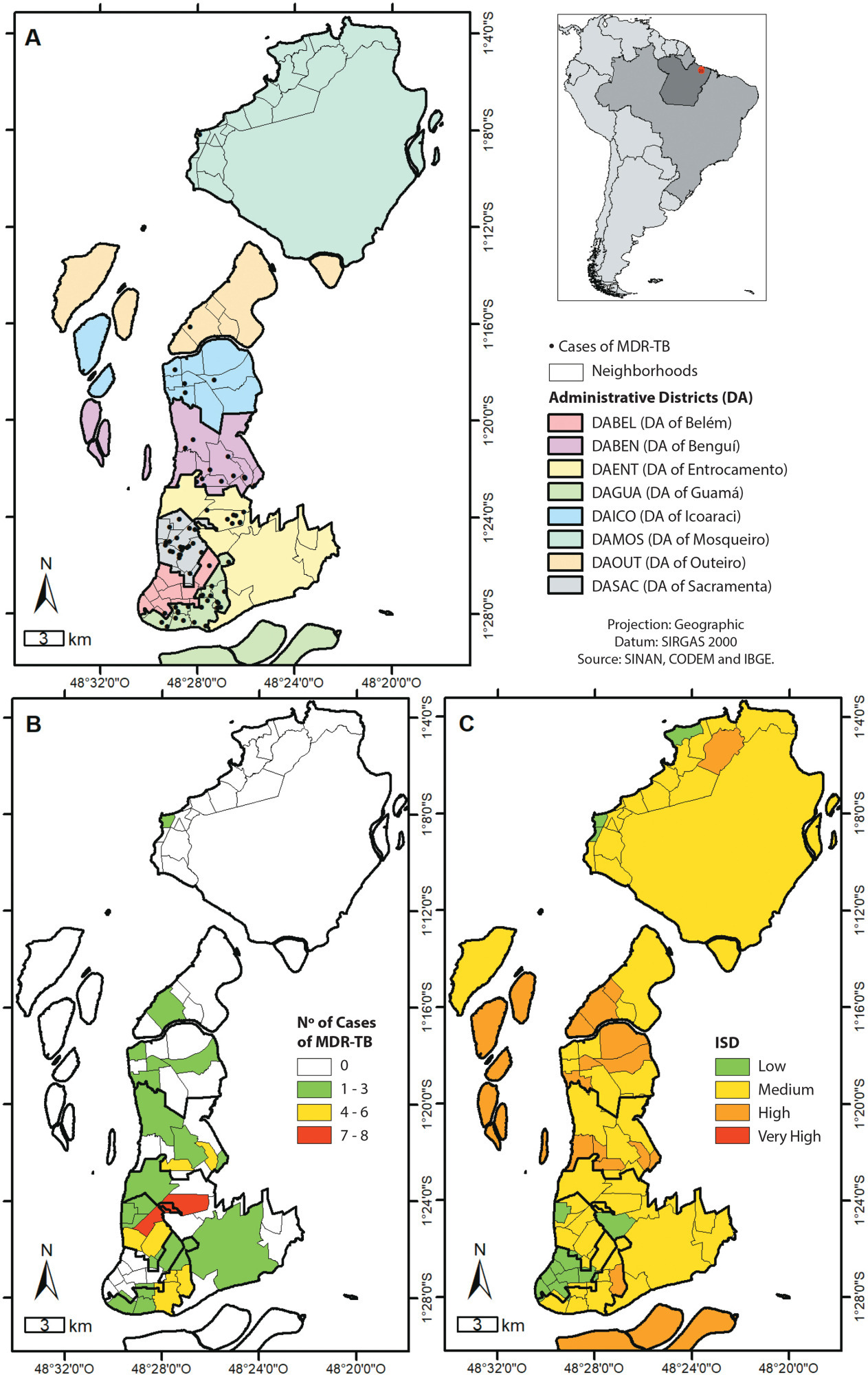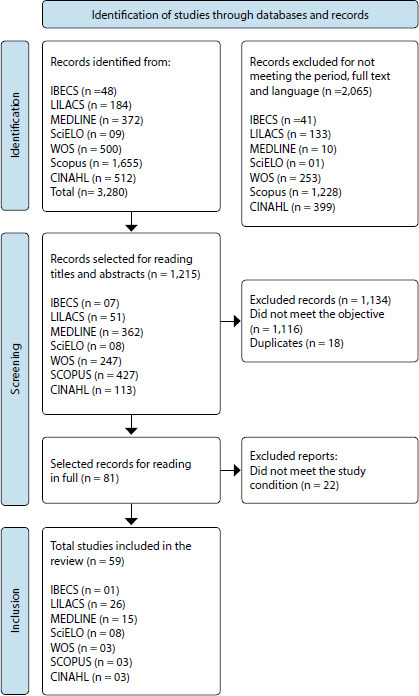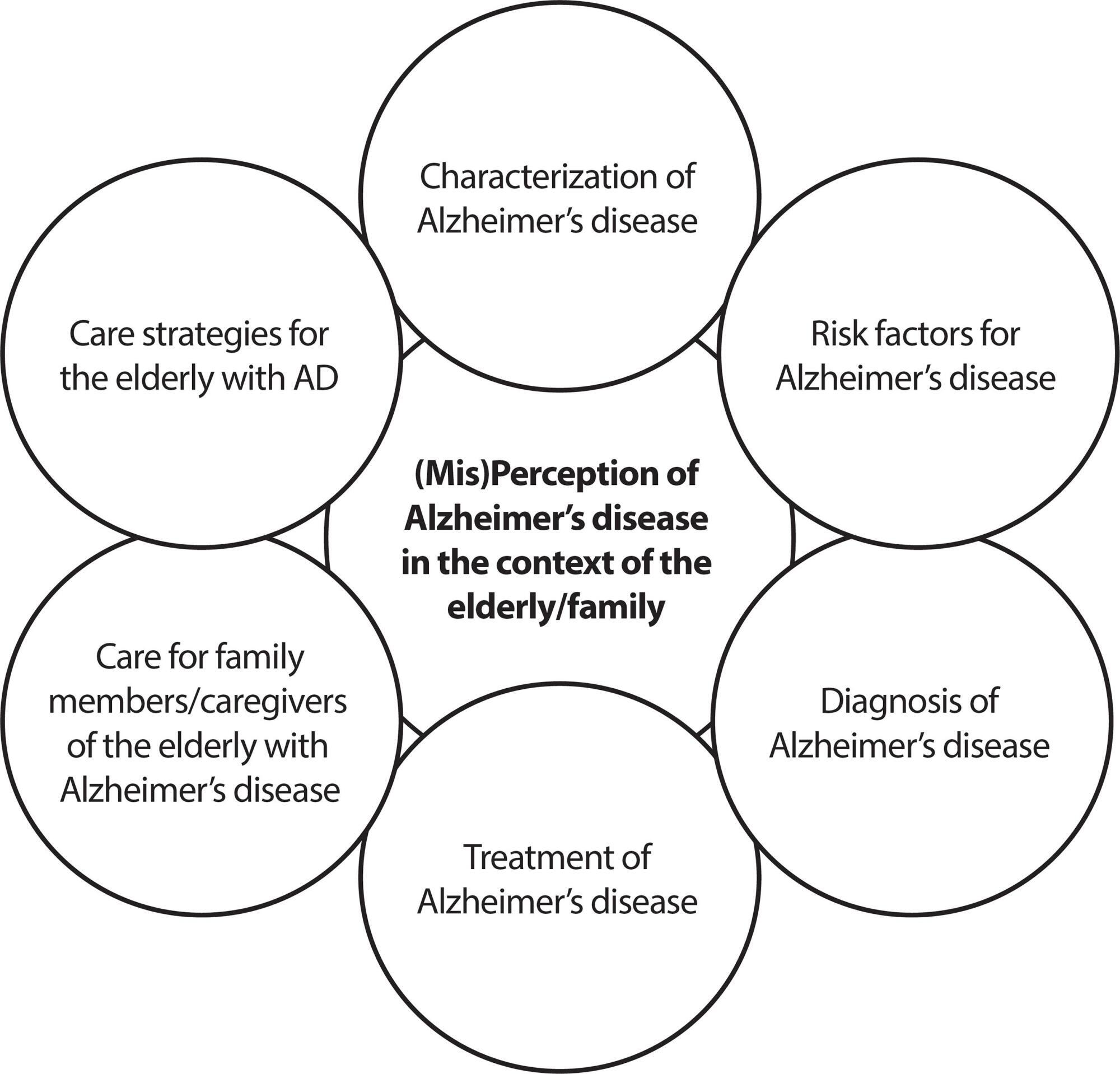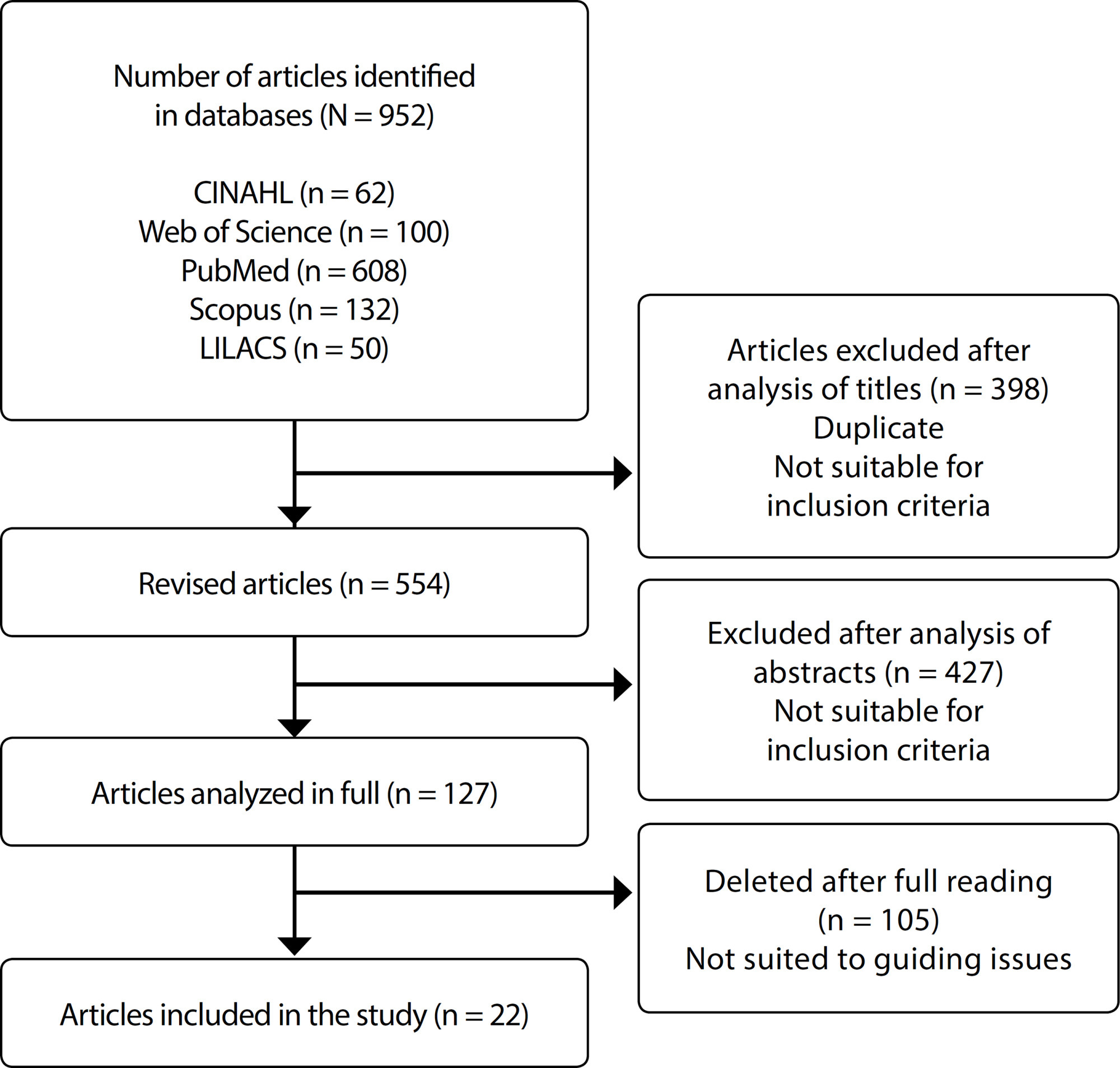-
ORIGINAL ARTICLE12-04-2023
Work and Mental Distress among Nurses in the Amazon Region of Brazil during the COVID-19 Pandemic
Revista Brasileira de Enfermagem. 2023;76(6):e20220792
Abstract
ORIGINAL ARTICLEWork and Mental Distress among Nurses in the Amazon Region of Brazil during the COVID-19 Pandemic
Revista Brasileira de Enfermagem. 2023;76(6):e20220792
DOI 10.1590/0034-7167-2022-0792
Views0See moreABSTRACT
Objective:
To assess the relationship between psychopathological symptoms and the social, clinical, and occupational profile of nurses in the Amazon region of Brazil during the COVID-19 pandemic.
Methods:
A descriptive cross-sectional online study was conducted in 2020 with 261 nurses. The Symptom Assessment Scale-40 was utilized.
Results:
The presence of pre-existing conditions before the pandemic was associated with psychotism (p=0.044). Experiencing constraints and/or violence at work during the pandemic was associated with somatization (p=0.025), and working hours were associated with anxiety (p=0.025). Nurses predominantly exhibited symptoms related to fear (33.7%), tension (34.5%), and a sense that something is wrong in the mind (22.6%).
Conclusions:
A significant association was observed between working hours and anxiety symptoms, the experience of constraints and/or violence at work during the COVID-19 pandemic and somatization symptoms, as well as between pre-existing conditions and psychotism symptoms related to COVID-19.
-
ORIGINAL ARTICLE12-04-2023
Social representation of spiritual surgeries in Umbanda: culture, religion and contributions of nursing theory
Revista Brasileira de Enfermagem. 2023;76(6):e20220787
Abstract
ORIGINAL ARTICLESocial representation of spiritual surgeries in Umbanda: culture, religion and contributions of nursing theory
Revista Brasileira de Enfermagem. 2023;76(6):e20220787
DOI 10.1590/0034-7167-2022-0787
Views1See moreABSTRACT
Objective:
to analyze the social representation of spiritual surgeries in Umbanda for Bantu-Amerindian ritual mediums and their contributions to the cross-cultural care proposed by Madeleine Leininger.
Methods:
a descriptive-exploratory, qualitative study, supported by the procedural approach of Social Representation Theory and Transcultural Nursing Theory, carried out with 30 Umbanda mediums of the Bantu-Amerindian ritual through interviews, submitted to the Iramuteq software for lexical analysis.
Results:
mostly women, white, with an average of 46 years old and approximately 14 years of practice in Umbanda participated. The social representation of spiritual surgeries in Umbanda is objectified and anchored through a biomedical vision of care, encompassing a set of beliefs, values and practices as religious treatments, through faith, whose main objective is healing.
Final considerations:
spiritual surgeries are a form of transcultural care, according to Madeleine Leininger’s propositions, as they integrate the culture of a group through health care in Umbanda.

-
ORIGINAL ARTICLE12-04-2023
Sexual behavior according to undergraduate students: perspective of cross-cultural nursing and intersectional framing
Revista Brasileira de Enfermagem. 2023;76(6):e20220786
Abstract
ORIGINAL ARTICLESexual behavior according to undergraduate students: perspective of cross-cultural nursing and intersectional framing
Revista Brasileira de Enfermagem. 2023;76(6):e20220786
DOI 10.1590/0034-7167-2022-0786
Views0See moreABSTRACT
Objective:
to discuss undergraduate students’ sexual behavior from the perspective of social markers and cross-cultural care proposed by Madeleine Leininger.
Methods:
descriptive-exploratory qualitative research, with a theoretical-philosophical foundation in the Transcultural Theory. Convenience sample was composed of 57 young people from two universities in Rio de Janeiro. The focus groups’ content were analyzed lexically using the IRAMUTEQ software.
Results:
four classes emerged: Young people’s sexual scripts: between the fear of an unplanned pregnancy and the risk of exposure to sexually transmitted infections; Affective relationships: trust in steady sexual partners, apparent sense of security and disuse of condoms; Sexual practices, gender and cultural determinants: distinction in men’s and women’s role; Sexual partnerships, negotiation of condom use and vulnerability to sexually transmitted infections.
Final considerations:
challenges are perceived for the attention to undergraduate students’ sexual health, who verbalized risky sexual behaviors due to sociocultural vulnerabilities.

-
ORIGINAL ARTICLE12-04-2023
Hospital discharge planning in care transition of patients with chronic noncommunicable diseases
Revista Brasileira de Enfermagem. 2023;76(6):e20220772
Abstract
ORIGINAL ARTICLEHospital discharge planning in care transition of patients with chronic noncommunicable diseases
Revista Brasileira de Enfermagem. 2023;76(6):e20220772
DOI 10.1590/0034-7167-2022-0772
Views0See moreABSTRACT
Objective:
to analyze care transition in hospital discharge planning for patients with chronic noncommunicable diseases.
Method:
a qualitative study, based on the Care Transitions Intervention theoretical model, with four pillars of intervention, to ensure a safe transition. Twelve professionals participated in a public hospital in the countryside of São Paulo. Data were collected through observation, document analysis and semi-structured interviews.
Results:
there was a commitment of a multidisciplinary team to comprehensive care and involvement of family members in patient care. The documents facilitated communication between professionals and/or levels of care. However, the lack of time to prepare for discharge can lead to fragmented care, impairing communication and jeopardizing a safe transition.
Final considerations:
they were shown to be important elements in discharge planning composition, aiming to ensure a safe care transition, team participation with nurses as main actors, early discharge planning and family involvement.
-
ORIGINAL ARTICLE12-04-2023
Psychometric Properties of an Instrument for Assessing University Administrators’ Knowledge on Gender-Based Violence
Revista Brasileira de Enfermagem. 2023;76(6):e20220770
Abstract
ORIGINAL ARTICLEPsychometric Properties of an Instrument for Assessing University Administrators’ Knowledge on Gender-Based Violence
Revista Brasileira de Enfermagem. 2023;76(6):e20220770
DOI 10.1590/0034-7167-2022-0770
Views0See moreABSTRACT
Objective:
To evaluate the factorial structure of the instrument measuring university administrators’ knowledge of gender-based violence.
Methods:
This cross-sectional methodological study was conducted from August to November 2020 with 101 university administrators. Data on demographic and functional characteristics were collected, and the “QUEST VBG UNIV” instrument was applied. Descriptive analysis was performed, the structure of the questionnaire was assessed using exploratory factor analysis (EFA), and the stability of the factors was verified through ORION and FDI tests.
Results:
Of the original 38 items across the 4 sections of the questionnaire, 19 were retained within 2 factors, with appropriate factor loadings. Factor 1 had an explained variance of 15.69%, and Factor 2 had an explained variance of 9.10%. The reliability was deemed satisfactory (ORION > 0.900, FDI > 0.900).
Conclusions:
The questionnaire presented a valid and reliable factorial structure for measuring knowledge about gender-based violence, thereby representing a suitable option for situational assessments in universities.

-
12-04-2023
Maternal Concerns in Home Care for the Premature Newborn: An Integrative Review
Revista Brasileira de Enfermagem. 2023;76(6):e20220769
Abstract
Maternal Concerns in Home Care for the Premature Newborn: An Integrative Review
Revista Brasileira de Enfermagem. 2023;76(6):e20220769
DOI 10.1590/0034-7167-2022-0769
Views0See moreABSTRACT
Objective:
To identify and analyze the scientific literature, both national and international, concerning the primary maternal concerns about caring for premature newborns at home.
Methods:
This integrative review is based on the guiding question: “What scientific publications from 2012 to 2021 address maternal concerns about the care of premature newborns at home?”. Searches were conducted in the electronic databases: Embase, Medline, Web of Science, Lilacs, Scielo, and Cochrane Library.
Results:
A total of 21 articles were identified. The qualitative analysis showed that maternal concerns pertained to breastfeeding, hygiene, sunbathing practices, managing infant colic, identifying signs, symptoms, and clinical changes, temperature control, and the third phase of the kangaroo method.
Conclusions:
Maternal uncertainties underscore the importance of enhancing strategies focused on supporting families and ensuring continued care for neonates at home.

-
ORIGINAL ARTICLE12-04-2023
Social representation of young people in higher education about sexually transmitted infections
Revista Brasileira de Enfermagem. 2023;76(6):e20220406
Abstract
ORIGINAL ARTICLESocial representation of young people in higher education about sexually transmitted infections
Revista Brasileira de Enfermagem. 2023;76(6):e20220406
DOI 10.1590/0034-7167-2022-0406
Views0See moreABSTRACT
Objective:
to analyze the social representations about sexually transmitted infections elaborated by undergraduate students.
Methods:
a descriptive, qualitative study, in the light of the structural approach of Social Representation Theory, carried out with 160 young undergraduate students, in the second half of 2019, in the city of Rio de Janeiro. Data were collected using a sociodemographic characterization questionnaire, knowledge and practices for preventing sexually transmitted infections, analyzed using descriptive statistics and a form of free evocations with the inducing term STD, analyzed using prototypical and similarity analysis.
Results:
the representation’s possible central nucleus is composed of lexicons aids, disease and HIV; the peripheral system by syphilis, sex, condoms, gonorrhea, prevention, infection, carelessness, HPV, herpes, ignorance, treatment, fear, unprotected-sex and danger.
Final considerations:
social thinking about sexually transmitted infections is characterized by their recognition as diseases, which require barrier prevention measures, associating with unsafe sexual practices that arouse fear.

-
ORIGINAL ARTICLE12-04-2023
Translation, cross-cultural adaptation and validity study of the “Play Nicely Program: The Healthy Discipline Handbook” for use in Brazil
Revista Brasileira de Enfermagem. 2023;76(6):e20220281
Abstract
ORIGINAL ARTICLETranslation, cross-cultural adaptation and validity study of the “Play Nicely Program: The Healthy Discipline Handbook” for use in Brazil
Revista Brasileira de Enfermagem. 2023;76(6):e20220281
DOI 10.1590/0034-7167-2022-0281
Views0See moreABSTRACT
Objective:
to describe the translation, cross-cultural adaptation and validity process of the “Play Nicely Program: The Healthy Discipline Handbook” for use in Brazil.
Methods:
a methodological study that followed the translation, back-translation, expert committee assessment, and pre-test steps. The Content Validity Index (CVI) was calculated for both the judge population and the pre-test population. Four translators, seven expert judges in the field of child health and thirty participants in the pre-test, including parents, teachers and healthcare professionals, participated in the study.
Results:
in experts’ analysis (98.4%), a value of 100% of adequate assessments was obtained, and in the target population’s analysis (89.5%), there were 100% of adequate assessments. In both analyses, suggested adaptations were made.
Conclusios:
cross-cultural adaptation and content validity into Brazilian Portuguese of the “Play Nicely Program: The Healthy Discipline Handbook” were considered adequate for application in the target population.

-
ORIGINAL ARTICLE10-19-2020
Spatial patterns of multidrug-resistant tuberculosis: correlation with sociodemographic variables and type of notification
Revista Brasileira de Enfermagem. 2020;73:e20190845
Abstract
ORIGINAL ARTICLESpatial patterns of multidrug-resistant tuberculosis: correlation with sociodemographic variables and type of notification
Revista Brasileira de Enfermagem. 2020;73:e20190845
DOI 10.1590/0034-7167-2019-0845
Views1See moreABSTRACT
Objective:
Correlate the cases of multidrug-resistant tuberculosis and its spatial patterns with the type of notification and sociodemographic variables.
Method:
Ecological study carried out in the municipality of Belém, with 77 cases of multidrug-resistant tuberculosis registered in the Special Treatment Information System for Tuberculosis, between 2012 and 2016. For analysis, the data was debugged followed by geo-referencing in ArcGis 10.3 and Terra View 4.2.2. To relate the cases with the type of notification, the BioEstat 5.4 software was used, with a significance level of 95%.
Results:
Of the total, 40 (52%) were new cases; 27 (35%), relapses; and ten (13%) were re-enrolled after leaving. Multidrug-resistant tuberculosis was randomly distributed and related to income, household, territorial cluster and water supply. There was a concentration of cases in two administrative districts, corresponding to 28.5% and 27.3% of the total, with a median Sociodemographic Index.
Conclusion:
Behavior of multidrug-resistant tuberculosis influenced by sociodemographic indicators.

-
ORIGINAL ARTICLE09-23-2022
Analysis of the concept of cardiovascular risk: contributions to nursing practice
Revista Brasileira de Enfermagem. 2022;75(4):e20210803
Abstract
ORIGINAL ARTICLEAnalysis of the concept of cardiovascular risk: contributions to nursing practice
Revista Brasileira de Enfermagem. 2022;75(4):e20210803
DOI 10.1590/0034-7167-2021-0803
Views0See moreABSTRACT
Objectives:
to analyze the concept of cardiovascular risk to support nursing practice.
Methods:
this is an analysis to define the concept of cardiovascular risk, through the use of eight steps of Walker’s and Avant’s framework, using a literature review in indexed scientific journals.
Results:
cardiovascular risk is defined in a broad and original way as a context of health and nursing care that makes it possible to identify modifiable (cardiometabolic, behavioral, psychosocial, cultural and occupational) and non-modifiable (biological) risk factors for cardiovascular diseases that act as early and interrelated markers, of multiple and heterogeneous etiology, predisposing to cardiovascular vulnerability.
Conclusions:
with the analysis and definition of the concept of cardiovascular risk, we realized that it will be possible to base nursing practice, with implications in clinical practice for identifying and reducing risk factors for cardiovascular diseases, with nursing relevance in the care of these subjects.

-
ORIGINAL ARTICLE07-13-2020
Awareness raising workshop for nursing students on the elderly with Alzheimer’s disease: contributions to education
Revista Brasileira de Enfermagem. 2020;73:e20190021
Abstract
ORIGINAL ARTICLEAwareness raising workshop for nursing students on the elderly with Alzheimer’s disease: contributions to education
Revista Brasileira de Enfermagem. 2020;73:e20190021
DOI 10.1590/0034-7167-2019-0021
Views1See moreABSTRACT
Objective:
To describe the contribution of an awareness-raising workshop for nursing students on Alzheimer’s disease in the context of the elderly/family.
Methods:
Strategic action-research developed with 15 university students from the sixth to the eighth semester of Nursing at a university institution in the Rio Grande do Sul. The data collected through semi-structured interviews, before and after an awareness-raising workshop on Alzheimer’s disease in elderly/family, were subjected to thematic content analysis.
Results:
Six categories were identified that concern (Mis) perception of Alzheimer’s disease in the context of elderly/ family, from the characterization; risk factors; diagnosis; treatment of Alzheimer’s disease; from care to family members/caregivers; and care strategies for the elderly with Alzheimer’s disease.
Conclusion:
The awareness-raising workshop enabled the students to broaden and deepen the knowledge on the theme of Alzheimer’s disease in the elderly.

-
REFLECTION12-13-2019
Women with fetal death: nurses’ care limitations
Revista Brasileira de Enfermagem. 2019;72:365-368
Abstract
REFLECTIONWomen with fetal death: nurses’ care limitations
Revista Brasileira de Enfermagem. 2019;72:365-368
DOI 10.1590/0034-7167-2018-0261
Views0See moreABSTRACT
Objective:
To present the limitations of the nursing care for women with fetal death, reflecting on this challenge for care practices.
Method:
Reflective study with theoretical focus on national and international publications, along with the experience of the authors in the area of women’s health and obstetrics.
Results:
There are limitations related to nursing care, which involve feelings of insecurity and powerlessness, inappropriate attitudes of these professionals in front of women, difficulties to manage emotional aspects, and structural problems of health services.
Final Considerations:
This study points out that there are challenges to qualify nursing care for women with fetal death, which included academic studies and continuing education in health services. Relational aspects should be valued and demand more sensitivity from nurses, with more empathic relationships in the care for women with fetal death.
-
ORIGINAL ARTICLE02-06-2023
Teaching entrepreneurship in undergraduate Nursing course: evaluation of an educational proposal
Revista Brasileira de Enfermagem. 2023;76(2):e20210244
Abstract
ORIGINAL ARTICLETeaching entrepreneurship in undergraduate Nursing course: evaluation of an educational proposal
Revista Brasileira de Enfermagem. 2023;76(2):e20210244
DOI 10.1590/0034-7167-2021-0244
Views1See moreABSTRACT
Objective:
To evaluate a proposal for teaching entrepreneurship in an undergraduate Nursing course that uses active methodologies and activities based on the theory of meaningful learning.
Methods:
Interventional, prospective study, with a quantitative perspective, with a total of 102 participating students, carried out from July 2017 to December 2019 at a public university in the state of Sao Paulo. Statistical analysis were performed by non-parametric Chi-square or Fisher’s exact tests, with differences considered statistically significant if p < 0.05.
Results:
Improvements were observed in almost all items evaluated, revealing that meaningful learning became more effective with the use of active teaching methodologies. Most students need adaptation and effort to be put into these methods.
Conclusions:
The proposal offers pedagogical content adaptation, specifically for nursing students. New research should expand teaching-learning techniques for the development of future nurses, preparing them adequately for the job market.

-
ORIGINAL ARTICLE10-18-2022
Health education for hospitalized patient in nursing care: a conceptual analysis
Revista Brasileira de Enfermagem. 2022;75(2):e20200459
Abstract
ORIGINAL ARTICLEHealth education for hospitalized patient in nursing care: a conceptual analysis
Revista Brasileira de Enfermagem. 2022;75(2):e20200459
DOI 10.1590/0034-7167-2020-0459
Views0INTRODUCTIONOver the years, the development of health education practices is related to the historical moment of society(). The nineteenth and twentieth centuries presented decisive situations in the evolution process that we know today as health education. Nursing began to consider health educational practices after Florence Nightingale initially focused on professional training. Florence contributed to the […]See more
-
ORIGINAL ARTICLE06-27-2019
Organizational climate and teamwork at the Family Health Strategy
Revista Brasileira de Enfermagem. 2019;72(3):721-727
Abstract
ORIGINAL ARTICLEOrganizational climate and teamwork at the Family Health Strategy
Revista Brasileira de Enfermagem. 2019;72(3):721-727
DOI 10.1590/0034-7167-2017-0770
Views0See moreABSTRACT
Objective:
to measure the organizational climate in the work of professionals from Family Health Strategy (FHS) teams.
Method:
a cross-sectional study carried out with 458 professionals belonging to 72 FHS teams in a municipality in Southern Brazil. Data collection occurred between March and July of 2016 with self-application of the Team Climate Inventory (TCI). Data were analyzed by means of a non-parametric ANOVA.
Results:
“Team Participation” was the best-rated domain (8.11), while “Task orientation” was the worst (7.51). Nurses obtained the highest mean in TCI (8.05), and dentists, the lowest (7.45).
Conclusion:
TCI is an appropriate and innovative tool for assessing the teamwork climate at the FHS. Identifying fragilities such as “task orientation” and relationships among professional categories of the team supports the planning of actions for organizational climate improvements and teamwork at the FHS.
-
TECHNOLOGICAL INNOVATION09-24-2022
Transitional care from the hospital to the home in heart failure: implementation of best practices
Revista Brasileira de Enfermagem. 2022;75(1):e20210123
Abstract
TECHNOLOGICAL INNOVATIONTransitional care from the hospital to the home in heart failure: implementation of best practices
Revista Brasileira de Enfermagem. 2022;75(1):e20210123
DOI 10.1590/0034-7167-2021-0123
Views0See moreABSTRACT
Objectives:
Assess the compliance of the implementation of better evidence in the transitional care of the person with heart failure from the hospital to the home.
Methods:
Evidence implementation project according to the JBI methodology in a cardiology hospital in São Paulo. Six criteria were audited before and after implementing strategies to increase compliance with best practices. 14 nurses and 22 patients participated in the audits.
Results:
In the baseline audit, compliance was null with five of the six criteria. Strategies: training of nurses; reformulation of the hospital discharge form and guidance on self-care in care contexts; and making telephone contact on the 7th, 14th and 21st days after discharge. In the follow-up audit, there was 100% compliance with five of the six criteria.
Conclusion:
The project made it possible to increase the compliance of transitional care practices in people with heart failure with the recommendations based on the best evidence.

Search
Search in:
Nuvem de Tags
Adolescente (85) Atenção Primária à Saúde (239) COVID-19 (91) Criança (91) Cuidados de Enfermagem (269) Educação em Enfermagem (151) Educação em Saúde (139) Enfermagem (930) Enfermagem Pediátrica (86) Estudantes de Enfermagem (77) Estudos de Validação (131) Família (87) Idoso (208) Promoção da Saúde (99) Qualidade de Vida (104) Saúde do Trabalhador (86) Saúde Mental (145) Saúde Pública (82) Segurança do Paciente (150) Tecnologia Educacional (100)



